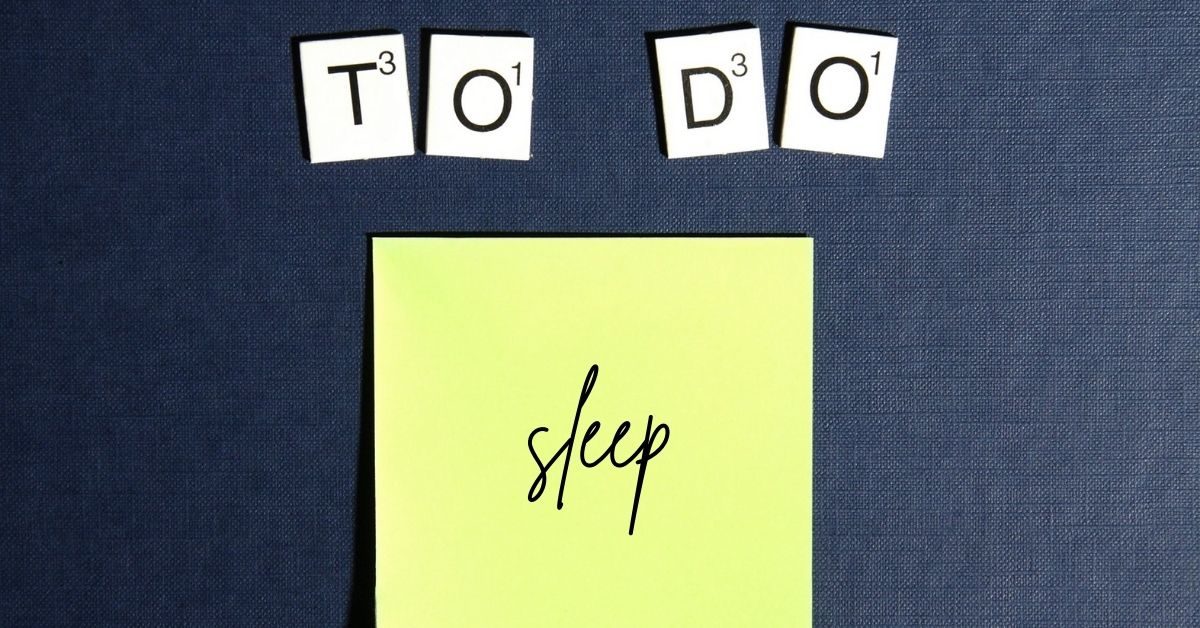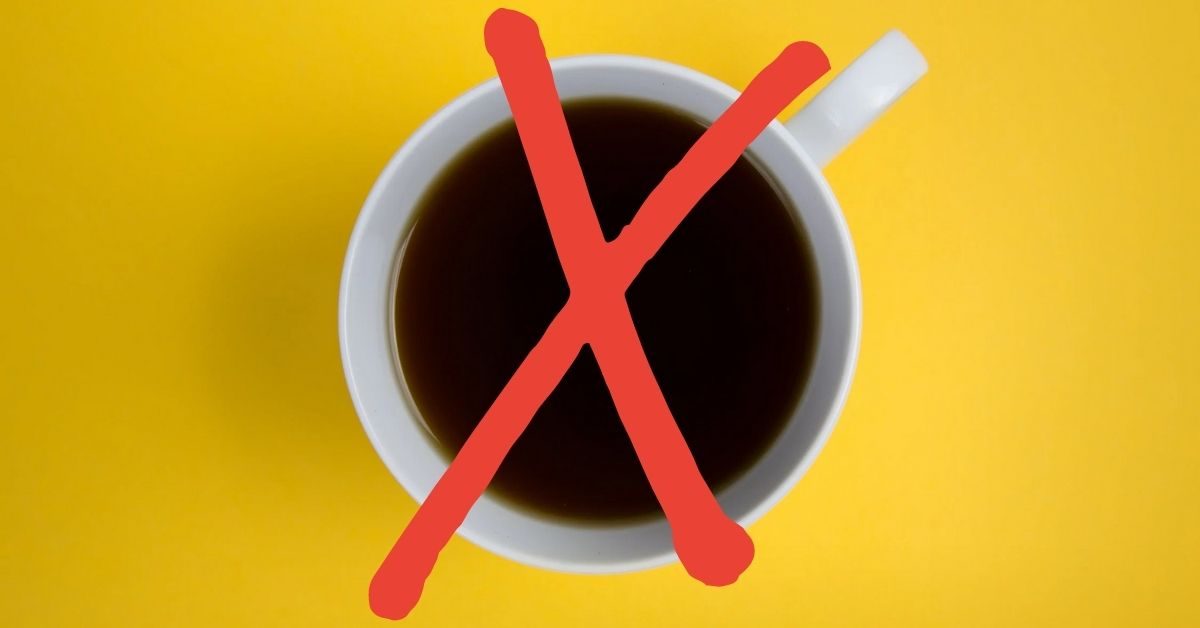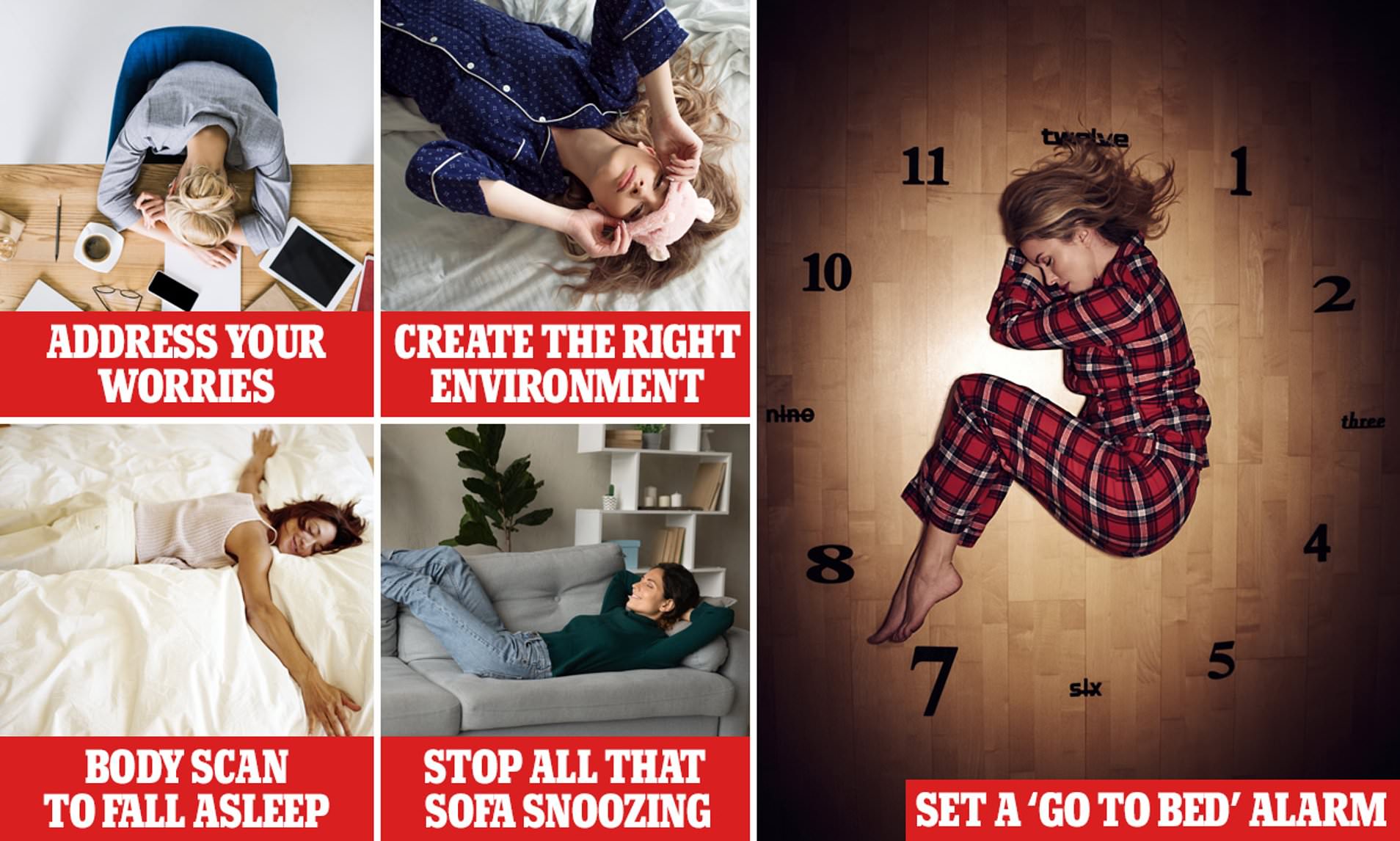Do you find yourself lying awake night after night as soon as your head hits the pillow? Having some tough mornings resulting from your lack of sleep? Dreading that alarm? Dr. Guy Meadows has top advice for you.
According to renowned sleep expert, professor and founder of The Sleep School, Dr. Guy Meadows, sleep is a learned habit that you can train.
Read on to discover the key tips and tricks that Guy Meadows gives to train yourself to sleep better.
What’s This Guy Meadows Podcast All About?
In this episode of Dr. Chatterjee’s podcast, Feel Better, Live More, he interviews Dr. Guy Meadows about how to get better, more refreshing sleep.
Dr. Meadows gives refreshing, modern advice on how to combat chronic insomnia and sleeplessness in a more effective and more natural way.
He is particularly well-known for his pioneering use of Acceptance and Commitment Therapy for Insomnia (ACT-I) as a technique to combat insomnia.
This is a well-rounded podcast where Dr. Meadows offers top sleep tips for transient insomniacs, chronic insomniacs, and normal sleepers alike.
4 Sleep Tips We Learned from Dr. Guy Meadows
Dr. Guy Meadows believes it’s high time we stopped worrying about sleep and started accepting sleep. Not only that, but we should be making sleep our top priority.
Here are a few tips to help you achieve better sleep from Dr. Meadows.
1. Make sleep a priority

According to Dr. Meadows, “sleep is the most powerful performance enhancer known to mankind.”
He explains that a better night’s sleep impacts every biological process in a positive way.
Loss of sleep can become a serious problem, especially if it occurs for many nights in a row.
“If you’ve been awake for more than 17 hours, it has the equivalent impact on our ability to focus as having a blood alcohol level of 5% which is the legal limit [in the UK]. It would be crazy to drink before work but being sleep deprived has the same cognitive impact on our ability to focus.”
By making sleep more important in your life, Dr Meadows assures that you’ll feel more focused and attentive in the daytime. Plus, your mood will improve and you’ll have better memory.
Quite simply, make it your top priority to get more sleep.
2. Implement lifestyle changes that facilitate better sleep

Dr. Guy Meadows suggests taking steps to live a lifestyle which helps to facilitate better sleep.
But, what does this mean exactly?
First, manage your caffeine intake.
During that 3:00 slump at the office, it feels like the coffee machine is calling your name. But, try not to drink caffeine after early afternoon because it can impact your sleep that night. Even many hours into the future!
Instead of that coffee or tea, take a few minutes to meditate, go for a quick walk or increase your water consumption to help reenergize and refocus your mind.
Second, get outside and expose yourself to natural light.
Remember, we didn’t evolve to be in an office or house all day.
Natural light is critical to maintenance of our natural sleep rhythms and safely exposing yourself to the sun on a regular basis will help regulate your circadian rhythms.
Third, make the decision to put the phone down in the evening.
Equally, switch it to silent mode at bedtime so the noise doesn’t disturb your sleep.
In recent years, we’ve seen a huge rise in digital technology which has a negative impact on our quality of sleep and mental health. Phones trigger brain stimulation, making it harder to get to sleep and stay asleep.
The problem is that many people are addicted to their phones.
As Dr. Meadows puts it:
“our own behavioral actions are pushing us further and further away [from sleep].”
In short, controlling your phone habits is one of the easiest things you can do to steer you away from having a bad night.
Lastly, set reasonable sleep aims for yourself and don’t fight your physiology.
According to Dr. Meadows:
“sleeping through the night is not something we should be striving for.”
Sleep is surprisingly active. While everyone is slightly different, we all go through sleep-wake cycles throughout the night.
Humans have evolved to stir every few hours to protect ourselves from predators, go to the bathroom and make sure our surroundings are still safe. As Guy Meadows explains:
“We sleep in cycles and they are 90-120 minutes[…] we evolved like this to check for danger. But many of us become aware for that moment and wake up.”
Going to sleep with the ultimate goal of sleeping like a rock denies your physiology and can lead to sleep performance anxiety, which makes it even harder to get to sleep or fall back to sleep.
3. Try Acceptance and Commitment Therapy (or at least practice mindfulness)

Despite being skeptical about mindfulness at first, Dr. Meadows himself is now an avid practitioner of meditation and mindfulness.
His pioneering research into mindfulness has led him to be a huge proponent of Acceptance and Commitment Therapy (ACT) over traditional Cognitive Behavioral Therapy (CBT) as a new approach the treatment of insomnia and other sleep issues.
But, what is Acceptance and Commitment Therapy?
Dr. Meadows explains it as “mindfulness on steroids”.
Conventional CBT has the primary goal is to encourage patients to change negative emotions into something positive. The idea is to effectively balance and fill the negative space with positive thoughts instead.
ACT follows the mindful principle of letting those negative thoughts just exist and not trying to push them away.
Instead of taking a deep breath and pushing those thoughts away, ACT invites you to practice taking a deep breath and noticing those thoughts.
When discussing the benefits of ACT, Dr. Meadows explains,
“ACT teaches people to lean toward the discomfort […] we teach people to get to know the thoughts rather than trying to get rid of them […] It’s not the thoughts or feelings that are the problem, it’s our reaction to them. It’s our desperation to try to get rid of them […] often we are caught in such a tug of war with them, that’s what keeps our wakefulness fueled”.
He goes on to further explain that when humans have a problem, we try to come up with solutions and actions to solve the issue.
That’s what Dr Meadows wants people to get away from — trying to ‘do’ so many things when you try to fall asleep. By trying to come up with solutions to push negative emotions away, you create “sleep inflexibility”.
Basically, people add to their already existing anxious feelings by introducing the idea that ‘well I can’t sleep unless I do XYZ.’
Dr. Meadows suggests contrasting the behavior of a poor sleeper with a regular sleeper. If you ask a normal sleeper what they do to fall asleep, they typically say ‘nothing’.
He teaches people to come away from that ‘do’ mindset. Instead, drop the rituals and embrace what you’re already programmed for — natural sleep.
As a sleep researcher, Dr Meadows often works night shifts, leading to transient insomnia. Drawing on his own experiences, he says,
“I was struggling to try and make myself sleep. But sleep’s this natural biological process that you don’t need to do anything [to make it happen] so suddenly we’re doing lots of things to achieve something that requires nothing to do.”
The “Acceptance” part of ACT is something that he and many of his clients find most profound because they already do it on some level, just at the wrong time.
“Clients say they struggle to sleep all night then finally fall asleep at 6:30AM when they give up.”
He realized the connection between giving up and being able to sleep. What do people do in that moment when they can finally go to sleep, they give up — it’s acceptance.
4. What approach can chronic insomniacs take besides sleeping pills?

Dr. Meadows is not a big fan of sleeping pills, medication or chemical sleep aids unless absolutely necessary.
There is one main reason why these potions don’t work in his opinion.
On the topic of sleeping pills, he says:
“They are a short-term solution but a lot of people become reliant on them so they didn’t actually solve the problem.”
This observation is what led him to pursue alternatives like Acceptance and Commitment Therapy and mindfulness. He wanted to find a healthier, more effective, and more permanent solution to the issue.
To insomniacs he says “let go of the struggle, let go of the endless struggle” and move toward acceptance.
He says that for many insomniacs, it’s a learned behavior.
Perhaps they had one poor sleep-inducing moment that sparked a strained relationship with sleep. The following night, the amygdala (the worry and fear center of our brain) starts saying ‘well, I hope that doesn’t happen again tonight’. This continues on keeping you awake night after night.
This is the turning point where it can become a vicious cycle. Learning to let go of that struggle for control is critical.
Final Thoughts from the Doctor
Dr. Guy Meadows invited you to let go of the struggle to sleep and accept that it’s a natural activity.
This will be a whole lot easier, if you make sleep a priority, manage your caffeine intake, get some natural light, put down the phone, and set reasonable sleep goals.
But should you need a little extra help try looking into Acceptance and Commitment Therapy as an effective long-term solution.
If you’d like to hear more from Dr Guy Meadows, try his world-renowned book, The Sleep Book: How to Sleep Well Every Night.

Welcome to Snoozerville! I’m Dr. Alex Hartley, your guide to the world of restful sleep. With a Ph.D. in Sleep Science and years of experience as a sleep therapist, I’ve dedicated my life to understanding and improving sleep quality. My passion lies in uncovering the mysteries of sleep and sharing practical, science-backed advice to help you achieve the best rest possible. Beyond my academic pursuits, I’m an advocate for mindfulness and relaxation techniques, which I incorporate into my daily routine. At Snoozerville, I aim to transform your nights, combining the latest research with easy-to-implement tips. Whether you’re a chronic insomniac or just looking to improve your sleep hygiene, join me on this journey towards peaceful, rejuvenating sleep.

